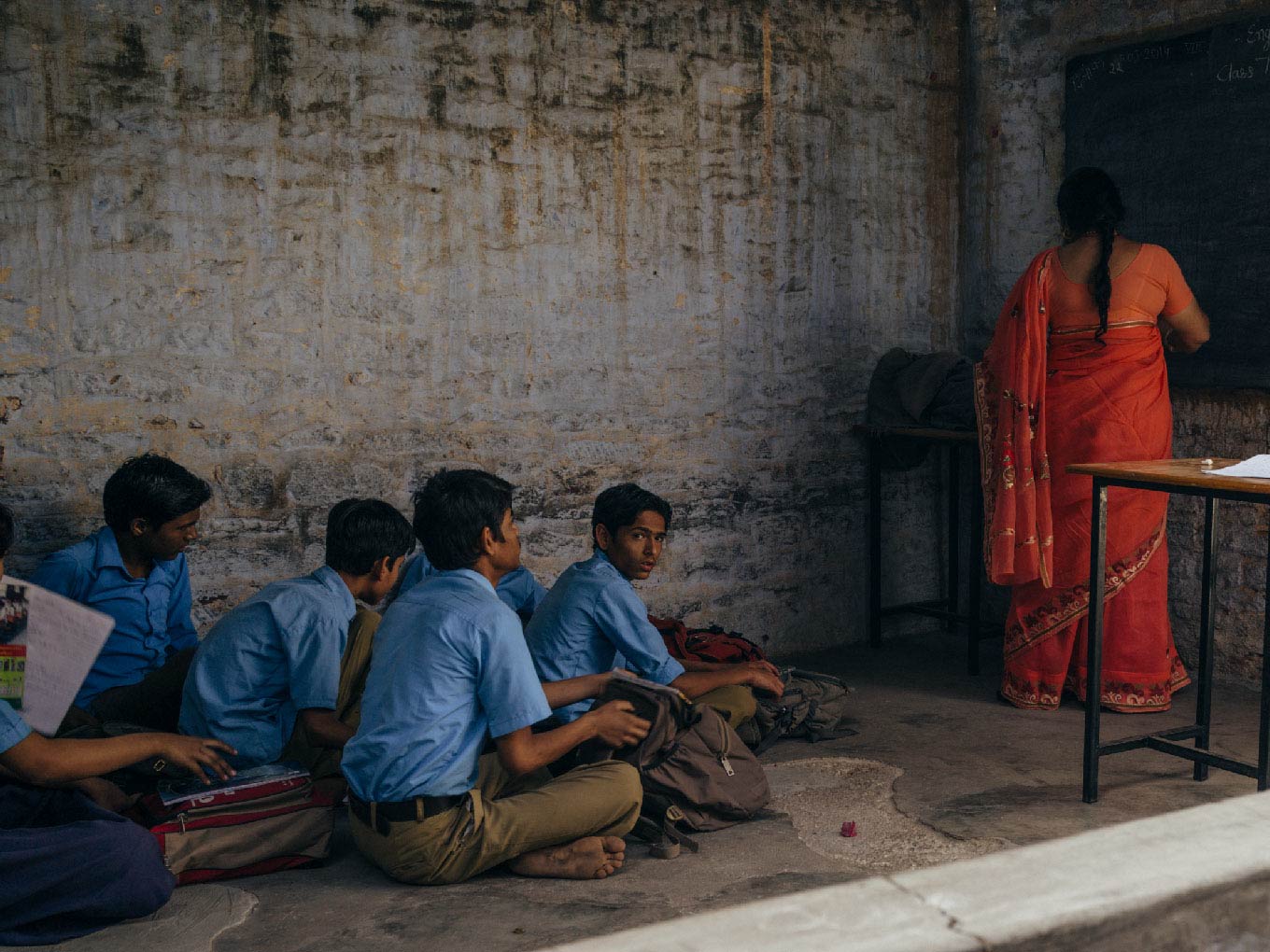
As India heads into the 2020s, there's motivation to accept we are going into another period of nervousness. Monetary development has been injured; numerous financial specialists contend recuperation will take long stretches of difficult change. Ethnic and strict strains have honed. Indeed, even India's center Sacred qualities and foundations, numerous pundits have contended, are attacked.
From mid-September to mid-October in 2019, several teachers were missing from government secondary schools in New Delhi — instructors who showed Math, Science, Hindi, Social Examinations, Sanskrit and English, including to those immensely significant 'board test classes'.
The educators had been called up, on the sets of the Political race Commission, for 'full-time political decision obligation' to refresh Delhi's state appointive rolls. Upwards of 10-12 instructors were missing from a solitary school. Their understudies simply needed to manage.
In the month that the understudies in Delhi's administration schools — huge numbers of whom work previously or after school as cleaners, shop associates or family work — sat instructor less, their peers in the city's some well-resourced non-public schools would have been enhancing their ordinary continuous school exercises with private educational cost to help set them up for school tests and for future-focused college entrance tests.
In February and Walk, all these youngsters from the administration schools and the majority of its tuition-based schools will sit precisely the same board tests.
The nonappearance of these educators scarcely got took note. Be that as it may, the consequences of the board tests will collect one end to the other media inclusion of high as can be grades, photographs and spouting meetings with test "toppers" about their prep insider facts and their expert dreams – which don't, for the most part, incorporate atomic physicist, disease transmission specialist, humanist or even financial analyst, and certainly not essayist, entertainer, humorist or craftsman.
The Board test is generally acknowledged as a definitive trial of legitimacy in India. It permits the intergenerationally special working class the bogus solace of feeling that they have what they have on account of "merit". By a similar token, it leaves a huge populace of the youthful (a lot of with no assurance even of instructors in their study halls) with the sentiment of disappointment, of lacking "merit", of not being sufficient and managing with second-or third-or even fourth-best choices. It's a coldblooded framework. It makes the fantasy of a probability and steadily secures benefits.
Just a little more than 50 percent of youngsters took on a school in India make it to Class 12. Not exactly 50% of them enter advanced education. Also, all things considered, just the individuals who can bear the cost of costly 'private training' advance through that other 'merit-based' framework – the passageway tests to the pined for designing and medicinal universities.
It is so unordinary for somebody from a poor family to overcome the JEE and NEET tests that when they do, it stands out as truly newsworthy.
Be that as it may, an entire inadequately controlled private advanced education industry was made by monetizing the yearnings of the youthful and cheerful, in the fleeting IT and building blast. Schools talked up the achievement of the couple as a likelihood for the many. Over the most recent couple of years youngsters, especially with building capabilities, have been ridiculed as "unemployable", evidently inadequate with regards to the specialized information and delicate abilities, including English understanding, required in the business. In truth, regardless of whether they had these aptitudes, there are no employments. What's more, the reality remains that the advanced education business that benefitted from youngsters' fantasies undercuts their understudies.
Instruction has been sold in India as a course to national enormity. It is required to "socially inspire" poor people, change society and transform the nation into a financial powerhouse. In any case, in nations like our own where intergenerational social and monetary imbalances are dug in, instruction all alone changes practically nothing. It, for the most part, recreates the imbalances.
The Privilege to Training Act 2009, celebrated as a progressive law – on the grounds that it gives kids the lawful right to rudimentary instruction – was not able to give an equivalent right to all youngsters. The privilege to go to class is very pointless if the school the kid approaches keeps on disadvantaging the youngster. The individuals who drafted the law settled on a decision between the privileges of poor youngsters to a full-time instructor and the privilege of the State to utilize its educators as possibility assistants.
Rather than making it unlawful to call up instructors in government schools for non-scholarly work outside their schools, the law really permits it in certain conditions. The educators were missing from the Delhi government schools in September and October this year in light of the fact that the law, and law as translated by the courts, says it is satisfactory. So even the law that was instituted to give the privilege to all kids as a general rule gives a youngster whose guardians can't pay for the benefit of private tutoring a shortened/altered/contingent right.
These kids enter the open dialog on training about once per year, through a media raid to advance the NGO Pratham's yearly poor learning results overview. Consistently the study finds, what it has found for the most recent decade or more, that between 25-30 percent of kids in many states can't peruse a sentence in a Class 2 book and can't do two-digit subtraction.
It says nothing regarding the youngsters, regardless of whether they go to class consistently and if not why not; on the off chance that anybody has ever perused to them, on the off chance that they have a library they can utilize, if their educator has been out on enumeration or political decision or debacle help obligation, or if their instructor is simply not a decent instructor or an intrigued one.
Nobody poses inquiries about these things, similarly as nobody inquires as to why educators were missing from Delhi schools for an entire month. Posing inquiries entangles the national account about the freeing intensity of instruction, and it powers the working class to check its own benefit.
It is just governmental policy regarding minorities in society that has, to a degree, brought down certain boundaries. In any case, governmental policy regarding minorities in society all alone takes an exceptionally significant time-frame – a few ages even – to make an imprint in dug in benefit. Such unchecked benefit was in plain view during JNU's enemy of charge climb strike when the old working-class addressed and ridiculed understudies, most of whose families procure around Rs 1.4 lakh a year, which is not as much as what a considerable lot of them pay as school expenses for one kid at a tuition-based school in Delhi.
India's instruction framework offers training in disappointment. Furthermore, the sentiment of disappointment overloads the general public.

